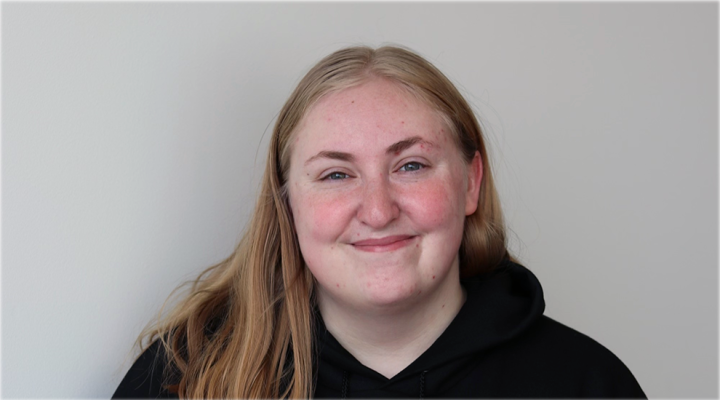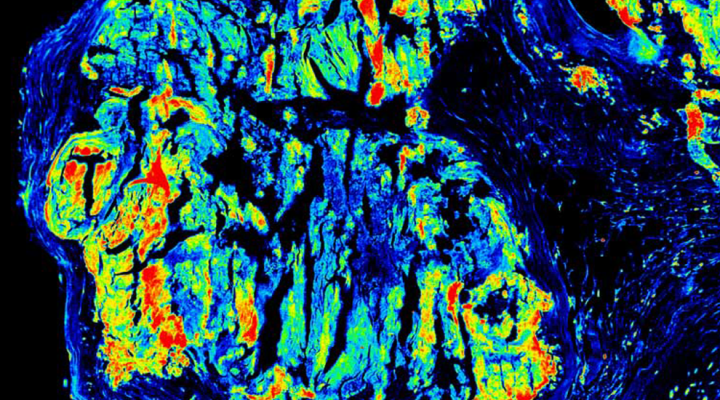Xu Liu grew up in the city of Qufu, in a coal-mining region of China’s Shandong Province. Her family has worked in the coal industry for three generations. This lifelong relationship with coal has propelled Liu nearly 7,000 miles away to Ithaca, NY, where she is earning her Ph.D. in mechanical engineering at Cornell University.
“When I was a child, I became aware of the pollution that came from coal mining and from using coal for heat and electricity,” said Liu. “The soil in my town is much darker than it should be naturally because of all the coal dust deposited from the air. And in the winter, when we burn coal for heat, the smog is thick.” Liu decided early on that she wanted to help design energy systems. But instead of systems powered by coal, oil, or gas, hers would be based on renewable technologies. “I want to help create a solution that will reduce pollution--and my family is very supportive of my choice.”
After graduating from Xi’an Jiaotong University, Liu went to Vancouver, Canada, for her master’s studies in mechanical engineering at the University of British Columbia (UBC). Her focus at UBC was using sunlight as an energy source to produce hydrogen by splitting water molecules. She worked specifically on improving a catalyst for this reaction.
At Cornell, Liu is taking her knowledge of electrochemistry and applying it to the field of soft robotics in the lab of Professor Rob Shepherd in the Sibley School of Mechanical and Aerospace Engineering. “Joining Professor Shepherd’s Organic Robotics Lab has opened a new world to me—it is all about applications to be used in soft robotics,” said Liu. Initially, Liu planned to earn only a master’s at Cornell, but once she started her research into flow batteries, she realized she wanted to take her studies beyond what she was able to learn in two years.
She re-applied to Cornell, but this time to pursue her Ph.D. “Rob is a very supportive advisor,” said Liu. “He is a good listener—he listens to your plans and gives excellent feedback to help shape the direction of your research. He is not someone to dictate what you should do next. So I wanted to continue in his lab.”
For soft robots to achieve their full potential, they will need to be untethered from a power source. Instead of plugging into a wall socket or generator, they will need to carry their own power source---and ideally, this power source will be flexible rather than rigid. Liu is taking what she has already learned about electrochemistry and applying it to the challenge of creating a “soft” power source.
The type of battery she is working on is called a flow battery, and it relies on two liquids flowing in different channels. The reactions between the liquids create energy that can be stored and released. This type of battery is ideal for soft robots because it does not require a rigid container and is rechargeable. Liu is excited to explore the possibilities of flow batteries and their ability to increase the energy density of hydraulically powered soft robots.
Liu sees her time at Cornell as an opportunity to not only grow as an engineer but also as a leader and an entrepreneur. “Professor Shepherd has been very supportive and encouraging when I talk with him about wanting to learn more about these areas, and I have also been fortunate to receive mentorship from Andrea Ippolito in the W.E. Cornell (Women Entrepreneurs Cornell) program.” said Liu.
Since arriving at Cornell, Liu has been selected as a German Chancellor Fellow by the Humboldt Foundation, been awarded the Epperson Entrepreneurship Fund for her Food2X initiative to reimagine food waste as a valuable energy source, been named a Young Changemaker on Sustainable Water, Sanitation, and Hygiene Solutions by the United Nations Children’s Fund, and been recognized as an Advancing Energy Scholar and Future Energy Leader by BP, who invited Liu to attend the One Young World Summit in London. While impressive, keep in mind this is not even the complete list of Liu’s honors and activities.
One she is most proud of is being chosen as part of the 7th cohort of the international Homeward Bound program. Homeward Bound describes itself as “a ground-breaking, global leadership initiative, set against the backdrop of Antarctica, which aims to heighten the influence and impact of women in making decisions that shape our planet.” Liu’s cohort includes 110 women from all over the world at various career points in Science, Technology, Engineering, Math and Medicine (STEMM). Due to the ongoing COVID pandemic, the first 11 months of the program will take place online. The final month will include in-person meetings and an expedition to Antarctica. “Mother nature needs her daughters to lead actions for positive changes, and I am proud to be part of the Homeward Bound program to increase the representation of women in leadership roles in STEMM,” said Liu.
Antarctica is a long way from both China and Ithaca, but Liu sees it as one more valuable step on the path to the future she imagined as a young girl in Qufu. Her experiences at home, in Canada, in Rob Shepherd’s Organic Robotics Lab at Cornell, and in Homeward Bound all bring her closer to the day she can help create sustainable solutions to Earth’s energy and pollution challenges.





